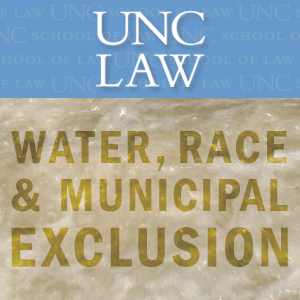Water, Race and Municipal Exclusion: the Zanesville, OH Case - Video
Subscribed: 0Played: 0
Subscribe
Description
On April 13, 2009 the UNC Center for Civil Rights presented Reed Colfax,
from Relman & Dane, P.L.L.C. and Dr. Allan
Parnell from the Cedar Grove Institute for Sustainable Communities,
to discuss the landmark Zanesville, OH case.
Reed was the lead counsel and Allan was the primary demographer and
expert witness in Kennedy et al v. City of Zanesville.
In that case, residents of the African-American Coal Run community
alleged they had been denied access to public water and sewer on the
basis of race. Residents had been requesting access to water since the
1950s, but their requests had been repeatedly denied. Throughout this
period however, access to public water was being provided to white
households surrounding (and beyond) the Coal Run community. The case was
initiated in 2002, and following a trial in 2008 in which GIS data and
maps were used to vividly illustrate the discriminatory patterns and
practices of the city's infrastructure development, the jury determined
the city and the county violated state and federal civil rights laws and
awarded nearly 11 million dollars in damages to the plaintiffs.
from Relman & Dane, P.L.L.C. and Dr. Allan
Parnell from the Cedar Grove Institute for Sustainable Communities,
to discuss the landmark Zanesville, OH case.
Reed was the lead counsel and Allan was the primary demographer and
expert witness in Kennedy et al v. City of Zanesville.
In that case, residents of the African-American Coal Run community
alleged they had been denied access to public water and sewer on the
basis of race. Residents had been requesting access to water since the
1950s, but their requests had been repeatedly denied. Throughout this
period however, access to public water was being provided to white
households surrounding (and beyond) the Coal Run community. The case was
initiated in 2002, and following a trial in 2008 in which GIS data and
maps were used to vividly illustrate the discriminatory patterns and
practices of the city's infrastructure development, the jury determined
the city and the county violated state and federal civil rights laws and
awarded nearly 11 million dollars in damages to the plaintiffs.
1 Episodes
Reverse
Comments






